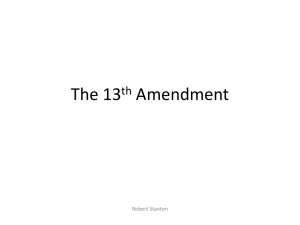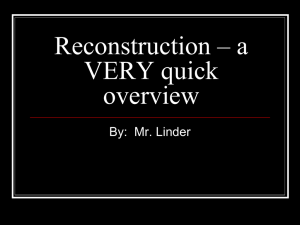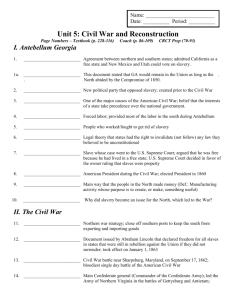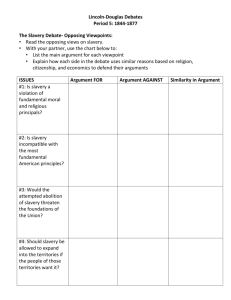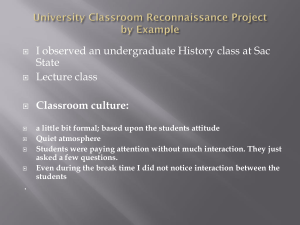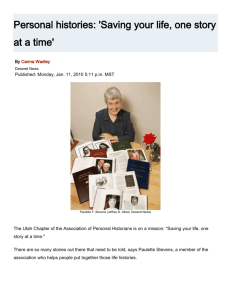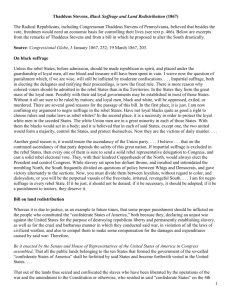stevens-speech
advertisement
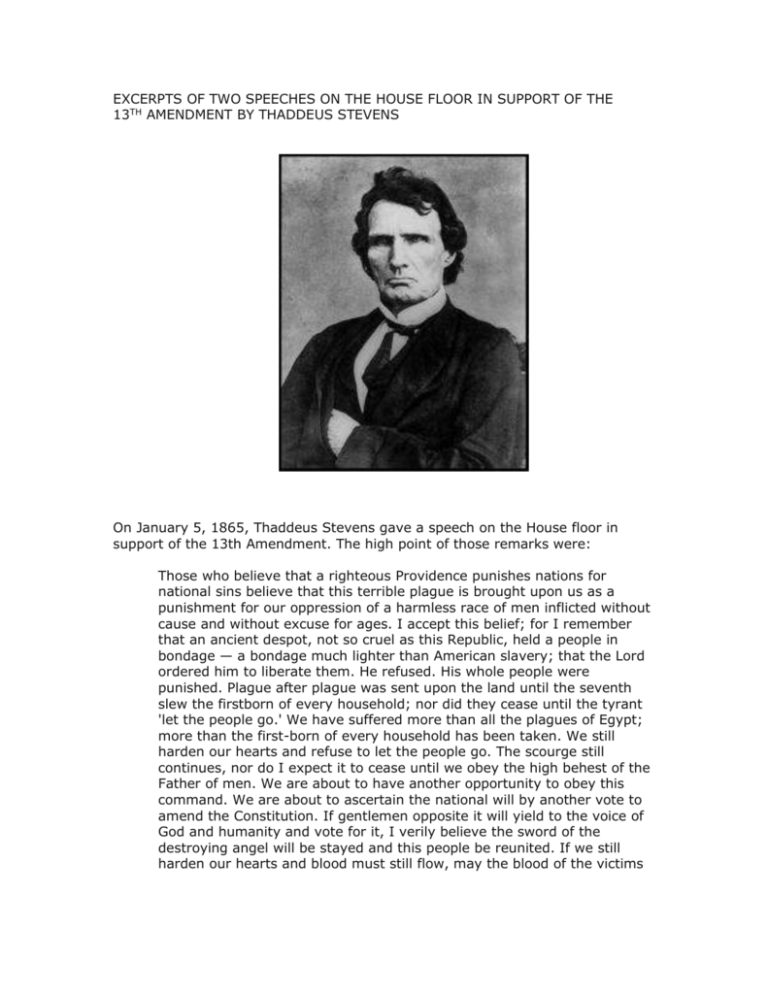
EXCERPTS OF TWO SPEECHES ON THE HOUSE FLOOR IN SUPPORT OF THE 13TH AMENDMENT BY THADDEUS STEVENS On January 5, 1865, Thaddeus Stevens gave a speech on the House floor in support of the 13th Amendment. The high point of those remarks were: Those who believe that a righteous Providence punishes nations for national sins believe that this terrible plague is brought upon us as a punishment for our oppression of a harmless race of men inflicted without cause and without excuse for ages. I accept this belief; for I remember that an ancient despot, not so cruel as this Republic, held a people in bondage — a bondage much lighter than American slavery; that the Lord ordered him to liberate them. He refused. His whole people were punished. Plague after plague was sent upon the land until the seventh slew the firstborn of every household; nor did they cease until the tyrant 'let the people go.' We have suffered more than all the plagues of Egypt; more than the first-born of every household has been taken. We still harden our hearts and refuse to let the people go. The scourge still continues, nor do I expect it to cease until we obey the high behest of the Father of men. We are about to have another opportunity to obey this command. We are about to ascertain the national will by another vote to amend the Constitution. If gentlemen opposite it will yield to the voice of God and humanity and vote for it, I verily believe the sword of the destroying angel will be stayed and this people be reunited. If we still harden our hearts and blood must still flow, may the blood of the victims sit heavily on the hearts of those who cause it. Congressional Globe, 38 Cong. 2 session, January 13, 1865, p. 124 Stevens' fellow congressman, Isaac Arnold, wrote of the final debate on the 13th Amendment, January 13, 1865: And now, on the 13th of January, came Thaddeus Stevens, Chairman of the Committee of Ways and Means, and the recognized leader of the House, to close the debate. As he came limping with his clubfoot along down the aisle from his committee room, the members gathered thickly around him. He was tall and commanding in person, and although venerable with years, his form was unbent and his intellect undimmed. The galleries had already been filled with the most distinguished people in Washington. As the word ran through the Capitol that Stevens was speaking on the Constitutional Amendment, senators came over from the Senate, lawyers and judges from the court rooms, and distinguished soldiers and citizens filled every available seat, to hear the eloquent old man speak on a measure that was to consummate the warfare of forty years against slavery. Stevens' discourse was more reflective than argumentative: From my earliest youth I was taught to read the Declaration and to revere its sublime principles. As I advanced in life and became somewhat enabled to consult the writings of great men of antiquity, I found in all their works which have survived the ravages of time and come down to the present generation, one unanimous denunciation of tyranny and of slavery, and eulogy of liberty. Homer, Aeschylus the Greek tragedian, Cicero, Hesiod, Virgil, Tacitus, and Sallust, in immortal language, all denounced slavery as a thing which took away half the man and degraded human beings, and sang paeans in the noblest strings to the goddess of liberty. When, fifteen years ago, I was honored with a seat in this body, it was dangerous to talk against this institution, a danger which gentlemen now here will never be able to appreciate. Some of us, however, have experienced it; my friend from Illinois on my right [Mr. Washburne] has. And yet, sir, I did not hesitate, in the midst of bowie knives and revolvers, and howling demons upon the other side of the House to stand here and denounce this infamous institution in language which possibly now, on looking at it, I might deem intemperate, but which I then deemed necessary to rouse the public attention, and cast odium upon the worst institution upon earth, one which is a disgrace to man, and would be an annoyance to the infernal spirits... I recognized and bowed to a provision in that Constitution which I always regarded as its only blot.... Such, sir, was my position ... not disturbing slavery where the Constitution protected it, but abolishing it wherever we had the constitutional power, and prohibiting its further expansion. I claimed the right then, as I claim it now, to denounce it everywhere.... So far as the appeals of the learned gentleman [Pendleton] are concerned, in his pathetic winding up, I will be willing to take my chance, when we all molder in the dust. He may have his epitaph written, if it be truly written, 'Here rests the ablest and most pertinacious defender of slavery and opponent of liberty;' and I will be satisfied if my epitaph shall be written thus: 'Here lies one who never rose to any eminence, and who only courted the low ambition to have it said that he had striven to ameliorate the condition of the poor, the lowly, the downtrodden of every race and language and color.' Congressional Globe, 38 Cong. 2 session, January 13, 1865, pp. 265-267.
